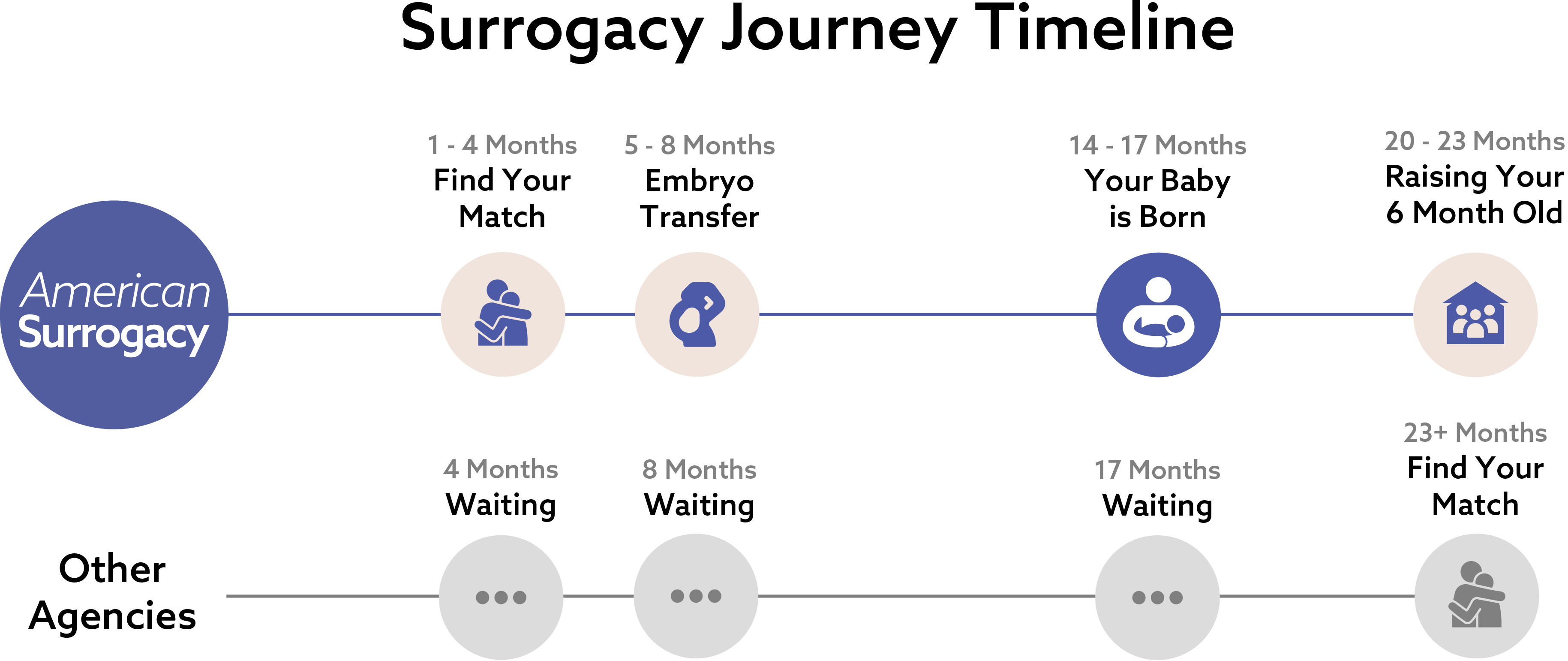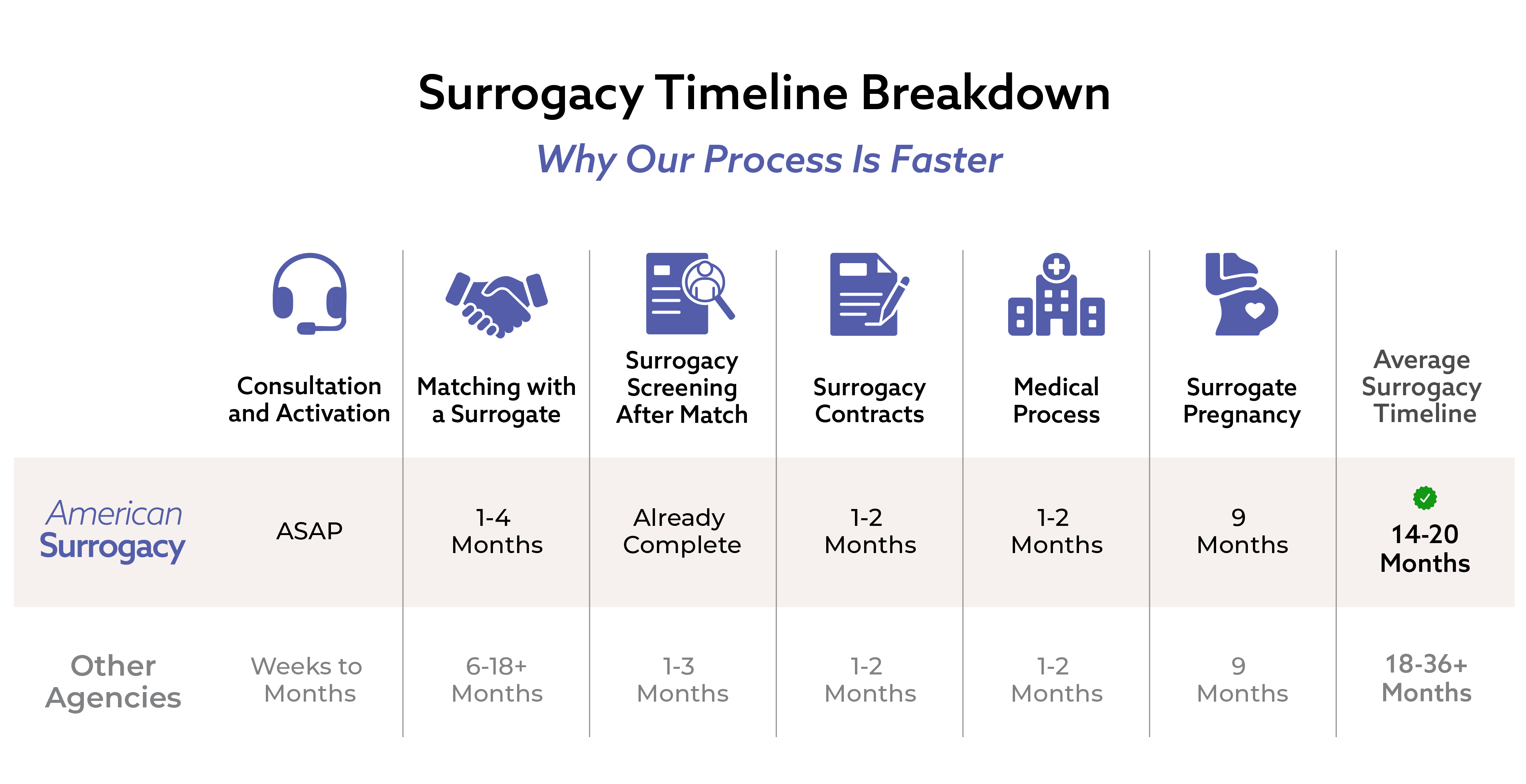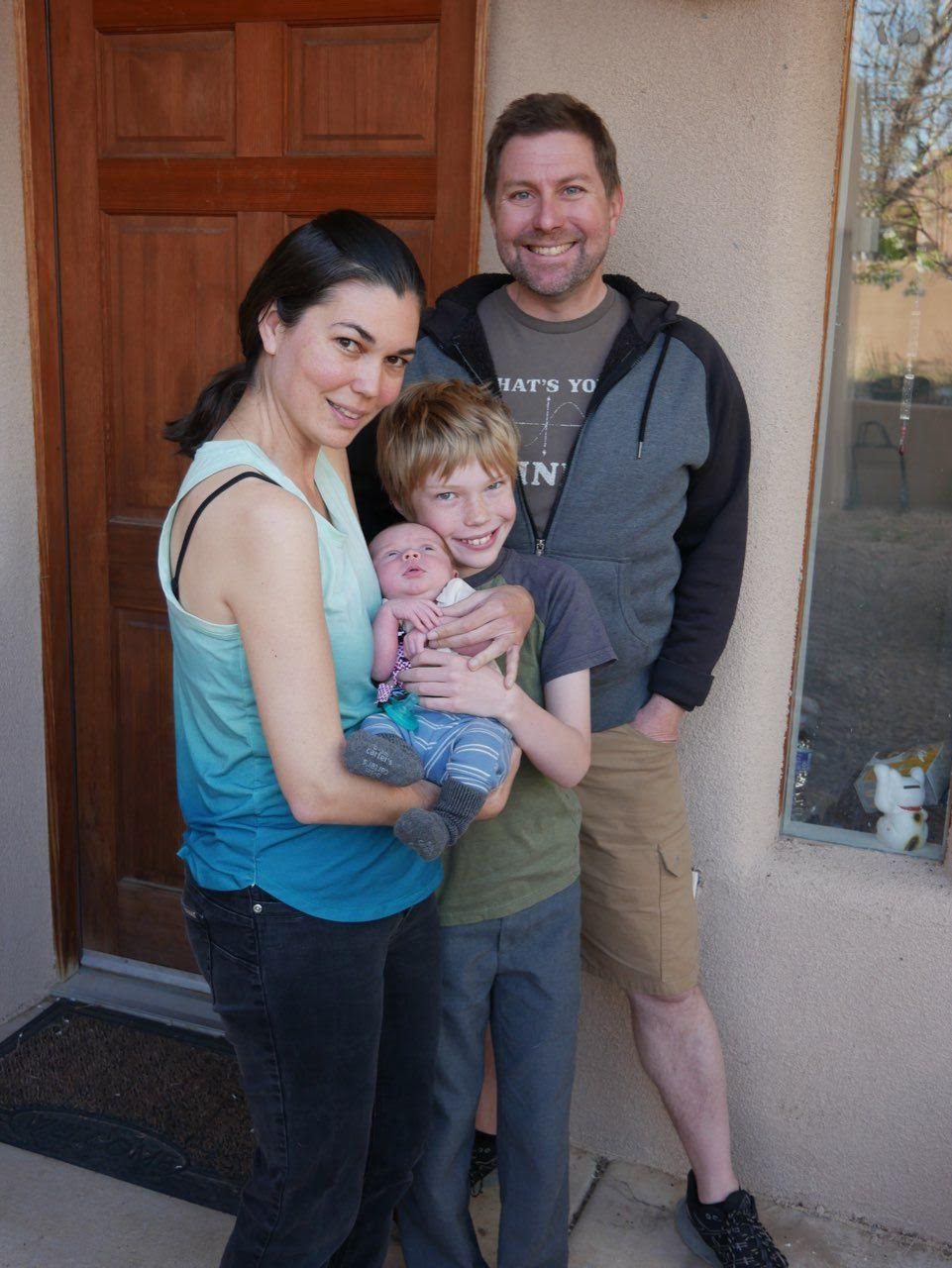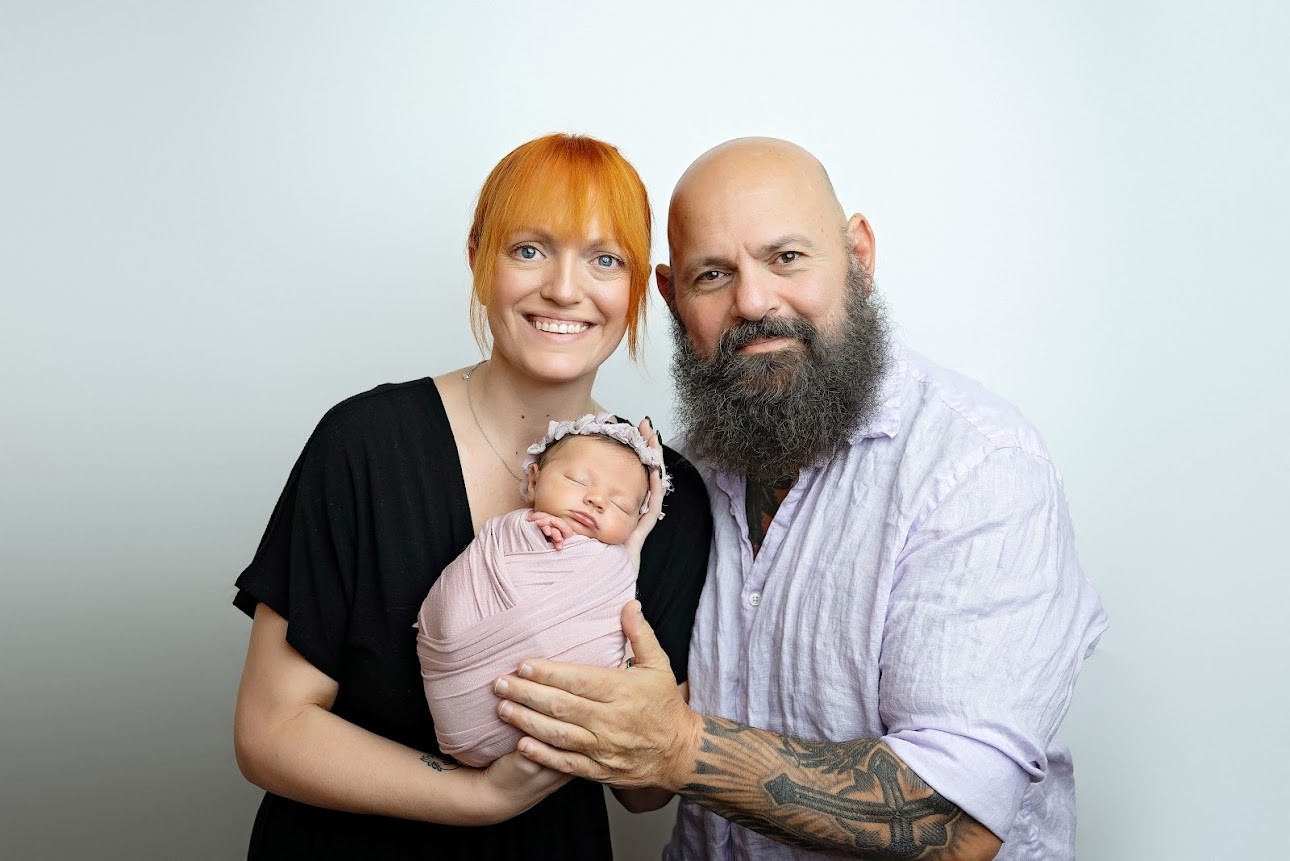If you're reading this, you've probably been through more than anyone should have to endure on the path to parenthood. The endless appointments, the medications, the hope followed by heartbreak—it takes a toll that's hard to put into words.
When doctors tell you that carrying a pregnancy isn't safe or possible for you, it can feel like your dreams are slipping away. But what you're facing isn't the end of your journey to parenthood—it's the beginning of a different path. Surrogacy offers you a way to have the biological child you've been fighting for, while protecting both you and your baby.
Take a deep breath. You've found the right place to explore your next steps.
You might be here because your IVF cycles keep failing despite having good embryos, because pregnancy would put your health at serious risk, or because you've discovered you physically can't carry a pregnancy to term. Whatever brought you to this moment, please know that you're not alone, and there's nothing wrong with needing help to bring your baby into the world safely.
Medical Conditions That Make Pregnancy Impossible: When Surrogacy Becomes Necessary
Sometimes there are medical reasons why pregnancy just isn't safe or possible for you, no matter how much you want it. That doesn't mean giving up on having a biological child—it means finding another way to make it happen. Surrogacy steps in where IVF hits a wall, giving you a safe path to grow your baby with your own genetic material.
Heart Disease, Missing Uterus, and Other Conditions That Require Surrogacy
Specific medical conditions that most commonly lead families to choose surrogacy include:
- Heart conditions that could be life-threatening during pregnancy
- Missing or damaged uterus from surgery or birth complications
- Cancer treatments that affected your ability to carry
- Autoimmune issues that keep causing pregnancy losses
- Chronic conditions like diabetes or kidney disease
- Previous pregnancy complications that were really serious
Medical literature backs this up: "Gestational surrogacy is indicated when the uterus is absent, malformed, or surgically removed, or when medical conditions make pregnancy dangerous for the mother." It's not about convenience—it's about what's medically appropriate for your situation.
The key difference is that IVF treats fertility issues, but surrogacy gets around pregnancy complications entirely. When your doctor confirms you can make healthy embryos but there are physical reasons why you can't safely carry them, surrogacy becomes the logical next step rather than trying more IVF cycles that probably won't work.
Ready to explore how surrogacy could work for your situation? Learn more about your path forward.
Why IVF Keeps Failing: Uterine Problems That Prevent Successful Pregnancy
Asherman's Syndrome, Thin Lining, and Immune Issues That Cause Repeated IVF Failure
When IVF keeps failing, it's often not because there's anything wrong with your embryos—it's usually a problem with implantation or carrying the pregnancy. You might have perfectly healthy embryos, but your uterus just can't support them for various reasons. Data shows that after three failed cycles with good embryos, your odds of success with more IVF drop significantly, while using those same embryos with surrogacy can work over 75% of the time.
Common underlying issues that cause repeated IVF failures are:
- Scar tissue in your uterus (which affects about 1.5% of women with pregnancy losses)
- Endometrial lining that stays too thin despite all the medications
- Immune issues where your body attacks the embryos
- Blood clotting problems that interfere with early pregnancy
- Structural issues like severe fibroids that can't be fixed
The thing about multiple failed cycles: each one takes about 2-3 months to recover from, and the stress makes future attempts less likely to work. Many women find their bodies become resistant to the medications over time too.
Surrogacy changes the whole game by giving your healthy embryos a uterus that's already proven it can carry a pregnancy successfully. When you know your embryos are genetically normal but your body just can't nurture them, surrogacy provides what your own uterus can't.
Surrogacy Cost vs IVF Cost: Which Is More Expensive After Multiple Failures
Let's talk honestly about the money, because you've probably already spent more than you planned. Each IVF cycle runs about $15,000-$25,000, plus another few thousand for medications. With success rates averaging around 32% for women under 35 and dropping to under 4% for women over 42, most people need multiple tries. Four failed cycles can easily cost $80,000-$120,000, and that's assuming no complications.
Surrogacy does cost more upfront—usually $100,000 - $200,000+ total. But what changes the math: when you have tested embryos and work with a surrogate who's already carried successfully, your chances jump to 70-80% on the first try. So you're more likely to bring home a baby.
Insurance makes this complicated. About 15 states require some IVF coverage, but only four states help with surrogacy costs at all. Most families pay out of pocket either way.
There are hidden costs to repeated IVF too—lost work time, counseling after losses, extra testing to figure out why it's not working, and just the opportunity cost of years going by. Many couples spend 2-4 years and over $100,000 on IVF before switching to surrogacy, and they often wish they'd made the change sooner.
What's helpful about surrogacy is you know what you're paying upfront, and the timeline is much more predictable than the rollercoaster of IVF attempts with diminishing returns.
Wondering about the real costs and success rates? See how to afford surrogacy compared to continued IVF.
Surrogacy vs Adoption: Maintaining Genetic Connection After Failed IVF
Both adoption and surrogacy create wonderful families, and there's no right or wrong choice between them. But if you've spent years going through IVF, creating embryos, and investing in the idea of having a biological child, it makes sense that you'd want to preserve that genetic connection.
How Intended Parents Stay Involved During Surrogate Pregnancy
Surrogacy lets you use your own eggs (or donor eggs you chose) with your partner's sperm. Your child will have your family's traits, your medical history, and that biological bond you've been working toward. About 78% of people who choose surrogacy after failed IVF say the genetic connection was their main reason.
The timelines are pretty different too. Adoption can take 12-18 months or longer, and there's no guarantee you'll be chosen. International adoption can stretch 2-4 years. With surrogacy, most people get matched within 1 - 4 months months, and if you have embryos ready, pregnancy can start relatively soon.
Surrogacy also keeps you involved in ways that adoption typically doesn't. You'll go to every appointment, see all the ultrasounds, be part of medical decisions, and be right there when your baby is born. After feeling so out of control during fertility treatments, having that involvement can feel really important.
The legal side is different too. With surrogacy, your genetic connection usually makes the legal parentage pretty straightforward from the start. With adoption, there are more legal steps and waiting periods involved.
Still weighing your options? Explore real stories from families who chose surrogacy after years of fertility treatments.
Using Frozen Embryos from Failed IVF in Surrogacy: Success Rates and Process
Something that might give you some relief: those embryos you created during your IVF cycles can absolutely be used with a surrogate. All those shots, monitoring appointments, retrievals—none of it was for nothing. Your embryos are just waiting for the right place to grow.
Frozen Embryo Transfer Success Rates with Gestational Surrogates
Using embryos you already have comes with real advantages:
- You're done with egg retrievals and all those medications that mess with your emotions
- Your timeline speeds up—transfer can happen within a couple of months of matching
- You already know which embryos have the best chances if they were tested
- You're not starting over financially with more expensive IVF cycles
Worrying about whether your embryos will survive the thawing process is understandable given everything you've been through. But modern freezing techniques are excellent—over 95% of good-quality embryos survive just fine. Your doctor can tell you exactly what to expect with your specific embryos.
Success rates are often better with surrogacy too. While your fresh IVF cycles might have had around 32% success rates, using those same frozen embryos with a qualified surrogate can work 60-75% of the time. That's because the problem was likely your uterine environment, not your embryos.
The timing works out well for people who've already been through IVF. Instead of waiting another 3-6 months to do fresh cycles, you can move toward pregnancy in about 4-6 months from starting surrogacy.

Have embryos waiting from previous IVF cycles? Discover how quickly they could become your baby through surrogacy.
Surrogacy Timeline vs Continued IVF: How Long Does Each Process Take
Surprisingly, surrogacy can get you to your baby faster than continuing with IVF cycles that keep failing. When you're stuck in a pattern that's not working, staying on that path often just drags things out longer.
How Long Does It Take to Find a Surrogate and Get Pregnant
With a good agency, finding your match usually takes 1 - 4 months months. During that time, your surrogate is getting all her medical and psychological clearances done, so once you're matched, you're both ready to move forward pretty quickly. Embryo transfer can happen within a month or two after that.
Compare that to the IVF cycle: each failed attempt means waiting 2-3 months before you can try again, plus time for your body to recover, plus whatever emotional processing you need. It adds up to more waiting than you might realize.
Surrogacy also gets you off that monthly emotional rollercoaster of hoping, waiting two weeks, getting disappointed, and starting over. Instead, you get a clearer path with more predictable milestones. After years of uncertainty, having that structure can be a huge relief.
If you already have embryos frozen and ready to go, your timeline gets even shorter. No more months of shots and retrievals—your embryos are ready, your surrogate is ready, and you can start growing your family much sooner.
Evidence from multiple clinics shows: couples who switch to surrogacy after 3+ failed IVF attempts usually get pregnant 6-12 months sooner than if they'd kept trying IVF, and with much better odds of success.

Curious about realistic timelines for your specific situation? Find out how soon you could be matched and moving forward.
Coping with Not Carrying Your Own Baby: Emotional Challenges of Surrogacy
Grief and Loss When You Can't Carry Your Own Pregnancy
Learning you can't safely carry your own pregnancy is tough, even when surrogacy offers a clear path forward. Most people (around 85-90%, according to mental health professionals) go through some grief about losing the pregnancy experience they imagined—feeling kicks, having a visible bump, all those things that come with carrying your own baby.
It's normal to need time to shift from "I want to carry my baby" to "I want someone I trust to help me have my baby." Take whatever time you need with that transition.
How Intended Parents Bond with Baby During Surrogate Pregnancy
What often surprises people: surrogacy lets you be really involved in your pregnancy. About 98% of intended parents go to all the prenatal appointments with their surrogate.
- Throughout your surrogacy journey, you'll be able to:
- Attend every prenatal appointment with your surrogate
- Be present for ultrasounds and hear your baby's heartbeat
- Help make important medical decisions about your baby's care
- Receive regular updates and photos throughout the pregnancy
- Be right there in the delivery room when your baby is born
The relationship with your surrogate often becomes something really supportive that you didn't expect. Most of our intended parents (94% according to our surveys) say they felt very involved in the pregnancy, which is often different from what they worried about beforehand.
Clinical studies indicate that intended parents using surrogacy bond with their babies just as much as people who carry their own pregnancies. The bonding happens through the ultrasounds, appointments, and being present for the birth rather than through physical pregnancy sensations.
Support helps a lot during this transition. About three-quarters of intended parents find counseling helpful during the surrogacy process, and connecting with other families who've been through it can make a real difference.
The grief process usually goes something like: acknowledging what you're losing, gradually accepting this different path, getting excited about working with your surrogate, and then feeling joy when the pregnancy succeeds. You can miss the experience you wanted while also embracing this new way forward.
Working through the emotions of this transition? Connect with families who've walked this exact path and found their way to parenthood.
American Surrogacy Services for IVF Veterans: Complete Support System
Making the switch from fertility treatments to surrogacy feels like a big leap, and you shouldn't have to figure it out on your own. We work with a lot of families who've been through extensive treatments, so we understand where you're coming from.
We make it a priority to work with families who have embryos waiting because we know you're ready to move forward. Our surrogates go through really thorough screening—comprehensive medical checkups, psychological evaluations, background checks, the works—because we want you to feel confident in who you're working with.
Surrogacy Agency Support: Legal, Financial, and Emotional Guidance
Most of our families find their match within 1 - 4 months months, which means you can go from making this decision to being pregnant much faster than continuing with treatments that aren't working for you.
Throughout your journey with us, we handle the complex logistics so you can focus on preparing for your baby:
- Coordinate with whatever fertility clinic and doctor you're already working with
- Make sure all the legal documentation is taken care of properly
- Walk through all the costs upfront so there are no financial surprises
- Provide emotional support from people who've guided thousands of families
- Give you 24/7 access to your coordinator when questions come up
Our track record speaks for itself: about 73% pregnancy rate per embryo transfer, 89% of confirmed pregnancies result in live births, and 94% of our intended parents say they're satisfied with their experience. These numbers reflect our screening process and the support we provide specifically for families coming from fertility treatments.

2 Months

1 Month

3 Weeks
We work with reproductive attorneys in all 50 states who know surrogacy law inside and out, so your legal rights are protected from day one. We handle all the hospital protocols, birth certificate stuff, and make sure everything goes smoothly when your baby arrives.
Talk to someone who understands your journey. Schedule a consultation with our specialists who've helped thousands of families just like yours.
We know that choosing surrogacy feels like closing one door and opening another. We're here to help you move on from treatments that aren't working and focus on a path that can get you to your baby.
Is Surrogacy Right for You After Failed IVF: Making the Final Decision
The switch from fertility treatments to surrogacy is really a medical decision based on what works, not about giving up on your dreams. After multiple IVF failures, medical conditions that make pregnancy unsafe, or diagnoses that make carrying impossible, surrogacy often provides the best shot at having a biological child—with success rates consistently higher than continued IVF after multiple failures.
Your frozen embryos, your desire for a genetic connection, and your readiness to be parents all line up perfectly with what surrogacy can offer. Instead of more treatment cycles with decreasing odds of success, surrogacy gives you clear timelines, predictable steps, and much better chances of bringing home a baby.
The support network you get through established surrogacy agencies includes medical coordination, legal protection, financial transparency, and emotional guidance specifically designed for people transitioning from failed fertility treatments. All of this is set up to give you the best possible outcome while keeping you involved throughout your pregnancy journey.
You've been through enough uncertainty. It's time to move toward the family you've been dreaming of. Get started on your surrogacy journey today.
That family you've been dreaming of, fighting for, hoping for—it's backed by medical evidence, proven processes, and thousands of successful outcomes. Contact American Surrogacy today, and let us show you how we can help you go from wondering "Will this ever happen?" to confidently preparing for your baby's arrival.